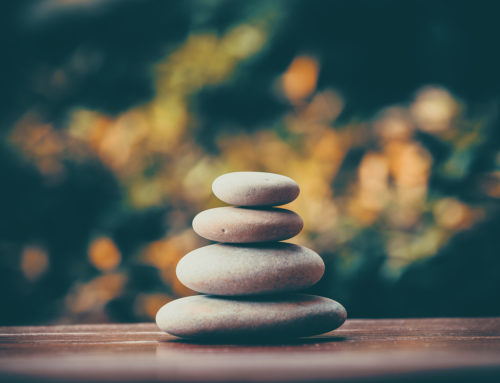
Every one of my clients has their own unique set of hopes and goals when we begin our work together, but many share the same wish – to feel more happiness and joy. The path to achieving happiness varies for every human, but there are some common threads that apply to everyone. In this blog I want to share some exciting research that you can apply today to help you experience more happiness, no matter your circumstances.
In 2010, Harvard researchers Matt Killingsworth and Daniel Gilbert conducted a massive research study on happiness. When I say massive, I mean it was huge. Their data included 600,000 individual reports from 15,000 people. This is important because when it comes to research, the more data you collect means the greater confidence you can have in your results.
Participants in this study were prompted by their phone at random times throughout the day to answer some quick questions about what they were doing and feeling in that moment. The researchers were hoping to identify the factors most associated with peoples’ happiness. The study, by the way, continues today and if you want to join, you can do so here.
The Importance Of Becoming Present
Interestingly, one of their major findings was that mind-wandering was a strong predictor of unhappiness. That’s right. No matter what people were doing, the primary predictor of their happiness was the extent to which they were focused on what they were doing. In other words, the more present you are, the happier you will tend to be. Oppositely, the more distracted you are, the less happiness you will likely experience. Killingsworth gave a great TED talk on this topic, which you can view here.
This means that your ability to stay focused on something is actually quite critical if you care about how happy you are. For most of us, staying focused can sometimes be tricky business. However, if these research results are accurate then we need to practice focusing on what we are doing – whatever it is – if we want to feel happier. It’s less about what you do, and more about how present you are when you do it.
This advice runs contrary to many of our real-life experiences of doing one thing while our minds are elsewhere – like being lost in thought while doing the dishes or showering, for example. It’s easy to use these times to problem solve and plan, but what if we could use those times to relax and let our minds simply focus on what we are doing in that moment?
Focusing on what you are doing in a given moment can be harder than it sounds. Our busy human brains love to think about things and do multiple things at once. Of all the strategies out there, the best tool I have found to help people become more present is mindfulness meditation.
Formal vs Informal Practice
Many of us are familiar with formal meditation practice – which involves setting aside time to simply meditate. With mindfulness meditation that means practicing resting in open awareness and observing the present moment with nonjudgmental awareness. When you notice you are distracted, you simply focus back on the present moment without judgment. These formal practices, however, are only part of the picture.
Equally important is informal practice, which consists of practicing becoming present regularly throughout your day. I tend to think of formal meditation practice as filling the well. Informal practices, on the other hand, help you draw from that well. You can read more about informal mindfulness practices in “The Art of Living Mindfully,” a blog I wrote a while back. The Track Your Happiness study shows us that the informal practices of bringing moments of presence to your everyday activities can have a direct impact on your overall happiness.
Unitask!
Instead of defaulting to multitasking all of the time, try unitasking once in a while. If you are chopping a carrot, let yourself just focus all of your attention on chopping the carrot. Notice the textures and sounds, observing the experience with curiosity without the need to multitask. If you are washing the dishes, let yourself focus on the sensory experience of washing the dishes. Try not to drift away in thought, and when you find your attention elsewhere, try simply redirecting your attention back to what your hands are doing. One moment at a time. We can recharge our batteries and practice something that increases our chances of happiness – all while also getting things done.
I invite you to play around with unitasking and see how it impacts your mood. If you want to amplify the effect, add in a regular formal mindfulness meditation practice as well. This formal practice will train your brain to make it easier to unitask, and hopefully help you find access to greater happiness in your life!
References:
Killingsworth M.; Gilbert D. (2010) A wandering mind is an unhappy mind. Science. Nov 12;330(6006):932. doi: 10.1126/science.1192439. PMID: 21071660.





